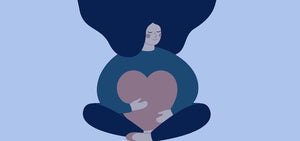Even though androgenetic alopecia is the most common form of hair loss, it is not the only one. There are actually a variety of medical conditions that can cause hair to shed and thin over time. Unexplained hair loss can also be the result of adverse reactions to prescription medication.
In order for any hair loss treatment to be effective, you need to have a proper diagnosis. Before you start a regimen, it is recommended that you consult with your doctor and discuss your symptoms and treatment options.
Prior to meeting with your doctor, it is helpful to familiarise yourself with possible prognoses. To assist in this process, we’ve compiled a list of some of the more common conditions that can cause hair loss.
Alopecia Areata
Alopecia areata (AA) is an autoimmune disorder that can affect hair on all parts of the body. Although the condition itself is not inherently dangerous, it can adversely affect the psyche of many patients that find it difficult to adapt to the sudden change in appearance. Luckily, 90% of patients diagnosed with alopecia areata regain their hair without treatment. Nevertheless, regrowth is slightly more likely in patients that only experience hair loss in a localised area, or are over the age of 40.
So, what is an autoimmune disease? Think of it like this:
Our body is made up of many different types of cells, some of which are programmed to help destroy harmful elements that attack our body. This process is necessary to combat germs and fight disease. Occasionally, however, these cells will instead attack the body they are supposed to protect. This is what we refer to as an autoimmune disorder. In the case of alopecia areata, white blood cells destroy hair follicles, causing them to stop producing hair shafts.
Types of Alopecia Areata
Alopecia Areata Monocularis – single patch of hair loss
Alopecia Areata Multilocularis – several patches of hair loss
Alopecia Totalis – all hair on the scalp is lost
Alopecia Universalis – all hair on the scalp and other parts of the body (including eyebrows and eyelashes) is lost
Possible (Speculated) Causes of Alopecia Areata
- Long term chronic stress
- Trauma
- Viral/Bacterial infection
- Stress due to pregnancy
- Allergies
- Chemicals and medications
- Other autoimmune conditions
Telogen Effluvium
There are 3 phases in the hair growth cycle: anagen (growing), catagen (transitional) and telogen (resting).
Telogen effluvium, or TE, occurs when a large number of hair follicles suddenly begin resting at the same time. This concurrence results in non-scarring, widespread hair shedding. Where the acceptable amount of fallen hair strands is usually around 100, patients experiencing TE may lose over 400. Telogen effluvium can affect people of all ages and races.
TE Causes
- Psychological stress
- Jet lag
- Chronic illness
- Surgery
- Crash dieting
- Medications
- Menopause
- Allergies
- Hormonal problems
2 Types of TE
Acute – sudden large amount of hair loss usually triggered by several factors including childbirth, short-term illness or mental illness. Acute TE lasts for only a short duration.
Chronic – can last for a long duration and is caused by prolonged stress, shock or iron deficiency.
Thyroid Disease
Thyroid hormones are necessary for the proper development and differentiation of cells throughout the body. However, when a person has either too much or too little of this hormone, the result can have a negative impact on hair growth. There are two main types of thyroid disease:
Hyperthyroidism – too much production of thyroid hormones
Hypothyroidism (thyroid hair loss) – too little production of thyroid hormones
There are no definite explanations on how thyroid diseases can directly affect hair growth, but they can be very stressful. Unfortunately, stress can also trigger other hair growth disorders like telogen effluvium or alopecia areata.
Medical Symptoms of Hypothyroidism
- Fatigue
- Mental depression
- Weight gain
- Constipation
- Dry skin or hair
Causes of Hypothyroidism
- Pregnancy
- Birth defect
- Hashimoto’s Disease (condition where immune system attacks the thyroid gland)
- Radiation therapy
Anemia Hair Loss
Anemia is a medical condition that results in patients having a reduced blood count. When blood count is reduced, the circulatory system suffers; leading to a variety of serious medical problems. In regards to hair loss, hair follicles rely on the circulatory system to provide them with blood, oxygen, and other nutrients. When these elements are reduced, hair growth and cycling are adversely affected.
Signs and Symptoms of Anemia
- Fatigue/Weakness
- Shortness of breath
- Chest pain
- Dizziness
- Headaches
- Irregular heartbeats
Causes of Anemia
- Menstruation
- Pregnancy
- Diet
- Chronic conditions
- Family history
It is best to consult with your doctor if you think you may be suffering from any of these conditions. Our overview provides only very cursory descriptions, so it is always advisable to seek the advice of a medical professional for more information.


























